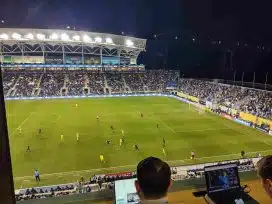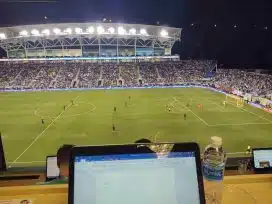News
Pennsylvania Casinos File Lawsuit Against State for High Slot Machine Revenue Tax

Twelve Pennsylvania casino owners filed a lawsuit against the state, claiming that a tax on slot machines is unconstitutional because it is not imposed on cash-paying electronic game terminals, known as skill games, found in bars and stores.
Pennsylvania imposes a 54% tax rate on slot machine revenues from Category 1, 2, and 3 casinos
Pennsylvania brings in more tax revenue from casinos than any other state, per American Gaming Association figures. In the Key Stone State, the tax rate on slot machine revenues from Category 1, 2, and 3 casinos is 54%.
The lawsuit, filed Monday, could endanger more than $1 billion in annual tax revenue that goes toward property tax rebates and economic development projects, according to The Associated Press.
Furthermore, the lawsuit comes a month after the state Supreme Court announced it will rule if these skill games are actually unlicensed gambling machines.
Casino owners argue these skill games are cutting into their profits and violate the state’s constitution. Skill games are not taxed at 54% like slot machines. The casino executives feel the skill games should be taxed the same in Pennsylvania.
In addition to bars, the games are located at gas stations, convenience stores, other non-age-restricted locations.
Lawsuit asks the court to force the state to apply the same tax rate to skill games
“There is no basis for requiring licensed entities to pay about half of their slot machine revenue to the Commonwealth while allowing unlicensed entities to pay no tax on such revenue,” they argue in the lawsuit.
The lawsuit asks the court to force the state to apply the same tax rate to skill games. The court could also prevent it from collecting taxes on slot machines. Caesars Entertainment Inc. and Penn Entertainment Inc. were among the major casino companies listed in the lawsuit.
The owners are calling on the state to either tax these skill games or not tax slot machines on their revenue. This would cost the state $1 billion in annual tax revenue. Tax proceeds go toward property tax rebates and economic development projects.
Instead of banning the games, a fair compromise would be for Pennsylvania to create a level playing field. The court has not ruled whether taxes on skill games must be rejected.
Georgia-based Pace-O-Matic won a few court decisions reversing seizure of their machines
The fate of the lawsuit, filed by the owners of 12 of the state’s 17 licensed and operating casinos, could depend on the outcome of a separate case.
A lower court in the past ruled in favor of a lawsuit filed by skill game maker Pace-O-Matic against the state. The court ruled that skill games are different than gambling machines because they are based on player ability. Slot machines and other traditional gambling machines are based on chance.
The state had maintained for years that these devices are illegally operating, unlicensed gambling machines. In other words, they can be seized by the police.
However, retailers, machine makers, and distributors have said that they are legal. Critics have also argued that the machines are not subject to state gambling control laws.
The American Gaming Association estimates there are at least 67,000 skill games across bars and stores in Pennsylvania. Some estimates say there are as many as 100,000 of the unlicensed games operating in the state.
The state department of revenue and the state’s Gaming Control Board declined to comment on the lawsuit.












































